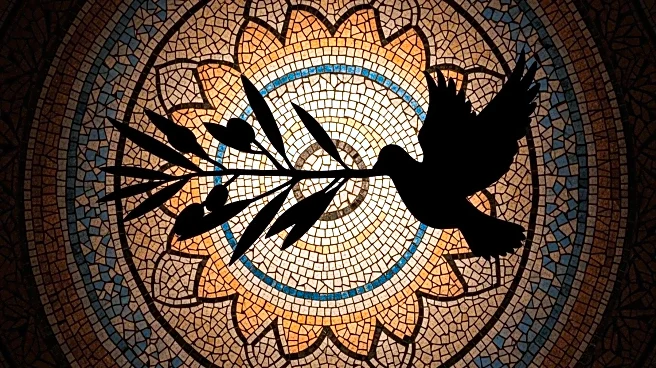What's Happening?
Tens of thousands of protesters have taken to the streets across Italy, causing widespread disruption in response to Israel's military actions in Gaza. The protests, organized by grassroots unions, led to the closure of schools, disruption of train services, and blockage of ports and roads. Demonstrators in cities like Milan, Rome, and Genoa expressed solidarity with Gaza, demanding the suspension of Italy's commercial and military cooperation with Israel. The protests coincided with several countries, including France, preparing to recognize Palestinian statehood at the UN General Assembly. Italy's Prime Minister Giorgia Meloni has distanced the country from this move, citing potential counterproductive outcomes.
Why It's Important?
The protests highlight significant public dissent in Italy regarding the country's stance on the Gaza conflict and its relations with Israel. The demonstrations reflect broader European tensions and the growing pressure on governments to address humanitarian concerns in Gaza. The recognition of Palestinian statehood by several countries could shift diplomatic dynamics and influence international policy regarding the Israeli-Palestinian conflict. The protests also underscore the potential for civil unrest in response to foreign policy decisions, impacting Italy's political landscape and its relations with other EU nations.
What's Next?
The Italian government may face increased pressure to reconsider its stance on the Gaza conflict and its relations with Israel. The protests could lead to further civil actions if the government does not address the demonstrators' demands. Internationally, the recognition of Palestinian statehood by more countries could lead to diplomatic shifts and potential repercussions for Israel. The situation in Gaza remains volatile, and further military actions could exacerbate tensions and lead to more widespread protests.
Beyond the Headlines
The protests in Italy raise ethical questions about the role of international communities in addressing humanitarian crises. The demonstrations reflect a growing demand for accountability and action from governments regarding foreign policy decisions that impact human rights. The situation also highlights the cultural and political divisions within Europe concerning the Israeli-Palestinian conflict, potentially influencing future EU policies and international relations.











